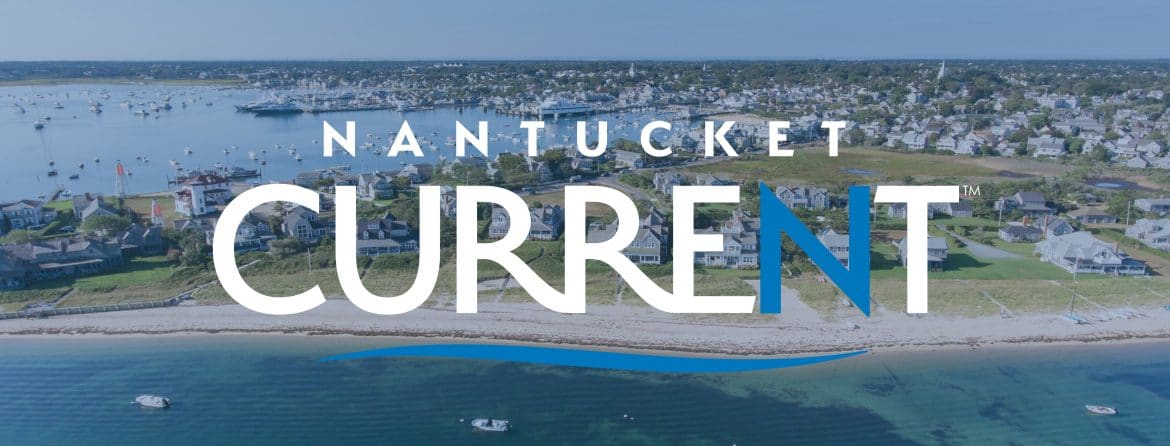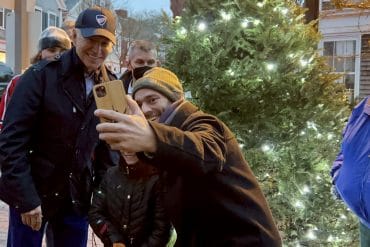*Since the individual alleged to be behind the African Meeting House vandalism in this civil lawsuit has not been criminally charged, the Current will refer to the person as “suspect” in this story.*
Jim Barros and Rose Marie Samuels, the plaintiffs in a civil case ongoing in Nantucket Superior Court that is demanding a jury trial and seeking damages from those responsible for the vandalism of the African Meeting House in 2018, are now asking the court to allow a motion that would instruct suspect, who is alleged by the plaintiffs in a filed document in July to be behind the hate crime, be required to answer non-self-incriminating questions during his deposition testimony. The request comes after an Aug. 25. deposition where suspect repeatedly exercised his Fifth Amendment Rights.
A deposition is a sworn, out-of-court testimony given by a witness in a civil lawsuit. Lawyers from both sides have the opportunity to ask the witness questions. The testimony is recorded in writing by a selected court reporter that is neither employed or related to any parties involved or financially interested in the case.
The motion was filed by the plaintiffs on Sept. 29. Suspect and his attorney, Jim Merberg, filed a motion asking that the court deny this request that same day. The August deposition lasted approximately 15 minutes, where suspect exercised his Fifth Amendment Rights 33 times.
“Well, based on the repeated assertion of the witness’s Fifth Amendment Rights, I’m going to suspend the deposition at this point and take the assertion of privilege up with the court,” plaintiff’s attorney John Hitt said. “We will resume the deposition after I’ve engaged in motion practice with the court.”
Hitt argues in his motion that while suspect has the privilege to refuse answering questions such as whether he was the one who spray painted the words “n***** leave” on the African Meeting House along with Phallic symbols, he does not have the privilege to avoid answering non-self-incriminating questions about what he may know about other individuals involved in the hate crime or a cover up of the hate crime altogether.
“The privilege protects (suspect) only against self-incrimination, not incrimination of others,” Hitt said.
But Merberg argues that the request by Hitt and the plaintiffs should be rejected. He also reveals that suspect has been the subject of the state’s investigation for quite some time.
According to the document, Merberg and suspect were informed by Special Prosecutor Daniel T. Higgins on June 22, 2020 that he was the target of the grand jury’s investigation into the March 2018 hate crime after the investigation was turned over to the state police and District Attorney’s office by the Nantucket Police Department on June 19, 2020.
Merberg proceeded to inform Higgins that if suspect was called before the special grand jury, he would refuse to answer to questions and invoke his Fifth Amendment Constitutional Rights.
During a July 9, 2021 conversation, Higgins informed Merberg that the special statewide grand jury sitting in Barnstable had been dismissed, however he reiterated that “if additional evidence was forthcoming the return of a criminal indictment against one or more individuals remained a possibility.”
On that same day, suspect was mentioned by name in the plaintiff’s amended complaint in their civil lawsuit to allegedly be behind the hate crime, along with unnamed individuals referred to as John Doe.
Merberg said suspect went on to refuse answering questions during the August deposition hearing because he had reasonable belief that answers to those questions could be used in a criminal prosecution against him in the future, or could lead to other evidence that might be used against him.
“(I) respectfully submit that the questions which Plaintiff’s counsel suggests require non-self-incriminating responses is misplaced,” Merberg said. “The defendant has the constitutional right to refuse to answer any and all questions, which he, after consulting with counsel, reasonably believes could be used in a criminal prosecution, or lead to other evidence that might be used.”
Merberg cited questions such as where suspect lived and/or worked at the time of the hate crime, and whether he knows specific individuals such as Jeffrey Sayle, who claims that suspect took responsibility for the hate crime in a private conversation the day after it was committed, would violate suspect’s constitutional rights.
Sayle pleaded guilty to making false statements to the police in March of 2021 in Nantucket Superior Court. Sayle originally told state police the paint spray can used in the hate crime was retrieved by him, hidden in a truck, and that both had since been junked during an interview in 2020. But Sayle went on to later change his story, revealing that neither had been junked. The spray can has since been retrieved by police and is currently being held as evidence by the state.
Merberg added in his motion that O’Keefe reported a “no bill” for another individual being suspected of involvement in the hate crime in October of 2020, which means they found no probable cause to indict the unnamed individual.
“A case like this is never closed, it remains open,” O’Keefe said. “If and when evidence comes to light that would be sufficient to take legal action, that would happen.” Merberg used this statement in his argument to further validate suspect’s reasoning for exercising his constitutional rights.
The plaintiffs are also asking that the court require suspect to pay for their attorney fees and other reasonable expenses for having to pursue this motion.





